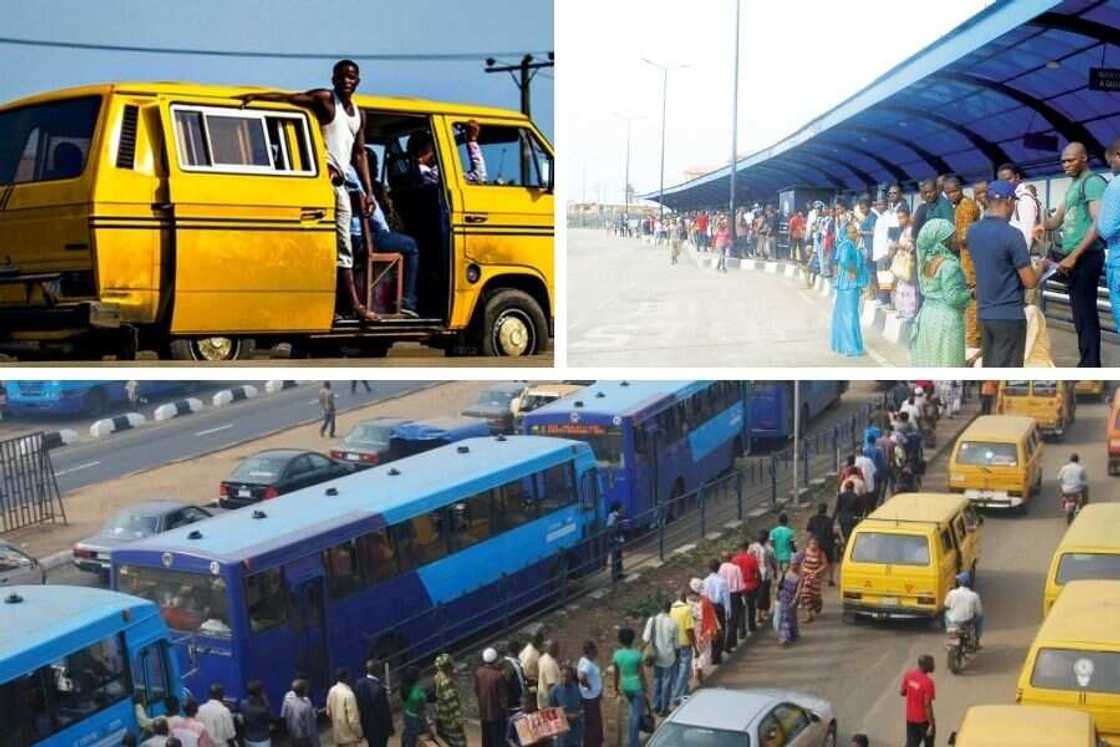N5,000 Fuel Subsidy Palliative: Breakdown of How Nigerians Move and the Cost of Transportation in Lagos
- This year, the Nigerian government will remove subsidy from petrol and replace it with a N5,000 palliative
- Nigerians said the money is not enough and will hardly cover the cost of moving around in a country beset by bad roads
- Lagos State, the commercial capital of Nigeria houses over 20 million residents who move from one part to another mainly on road transport
The Nigerian government has said it will remove the fuel subsidy from petrol and petroleum products by June this year and as an absorber, pay vulnerable Nigerians the sum of N5,000 monthly for six months to cushion the effect of the removal.
Nigerians have kicked against the move and the grant saying it is paltry and not far-reaching enough and said that instead of mitigating the effect of the subsidy removal will have on their pockets, it will worsen things for them and the economy.

Read also
2023: 84 Yoruba groups meet, set to conduct southwest opinion poll on presidential aspirants

Source: UGC
Legit.ng has taken a survey of three different routes in Nigeria’s commercial hub, Lagos and the different transportation costs in the areas.
PAY ATTENTION: Join Legit.ng Telegram channel! Never miss important updates!
The list is in no way exhaustive and does not represent the entire transport system in Lagos.
The majority of Lagos residents leave on the mainland but work on the islands where there are blue-chip and multinational companies.
Ikorodu to Lagos Island
A trip by Legit.ng to Ikorodu Bus Rapid Transport (BRT) terminal show that many who live in the area go to Lagos Island for work and business.
The transport fare from Ikorodu main BRT terminal to Race Course in Lagos Island goes for N300 per trip. This excludes the pecuniary cost of moving through bikes from their homes to the BRT terminal which is about N100.
So, it takes the average Ikorodu residents about N900, including the cost of riding in a tricycle or bike from the Race Course to various offices located inside the Island to commute to and from work daily.
Multiplying N900 by five days in a week gives N4,500. Multiplying N4,500 by four days gives an average commuter who lives in Ikorodu N18,000 monthly.
Ogba to Lagos Island
This route does not have BRT system to Lagos Island. Yellow buses are the major means of transport.
From Ogba Bus Stop to Lagos CMS in Lagos Island cost about N500 including the cost of moving home to the bus stop which is put conservatively at N100 by bike or tricycle.
So, the average Ogba resident in Lagos spends about N1,200 to and from Lagos Island. Multiplying N1,200 by five days gives N6,000 multiplied by four weeks it gives N24,000 monthly.
Iju to Ikeja
Residents of Iju and Agege spend an average of N900 to commute to and from work in Ikeja.
Multiplying N900 by five days in a week gives N4,500 and multiplying it by four weeks gives commuters the sum of N18,000 monthly.

Read also
Price of cement to drop as Dangote, BUA, Lafarge agree to sell at discount presidency reveals
The plan
Legit.ng has reported that the federal government is making moves to pay Nigerians transport allowance following the removal of fuel subsidy.
The minister of finance, budget and national planning, Zainab Ahmed, made the remark during an interview on Channels Television's Politics Today show on Thursday, November 11.
According to Ahmed, fuel subsidy is costing the country a significant amount of resources that should have been used for education, health and critical infrastructure.
Source: Legit.ng


